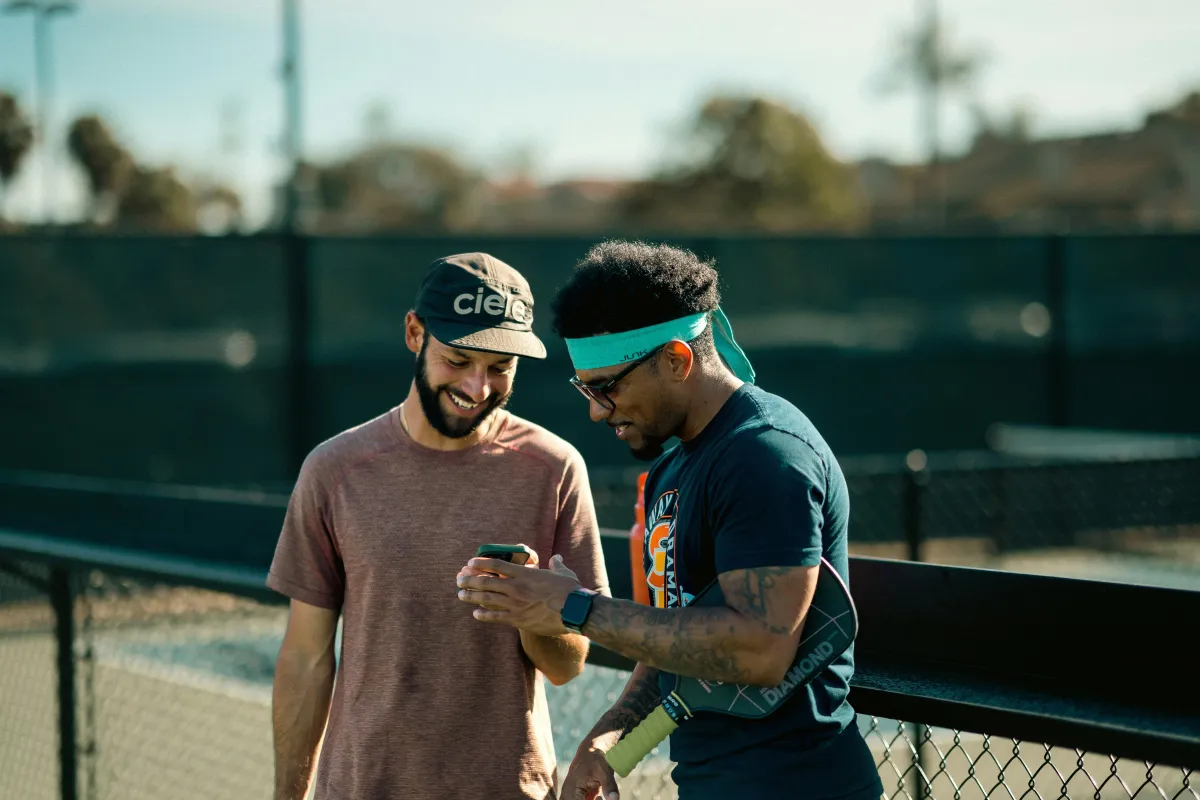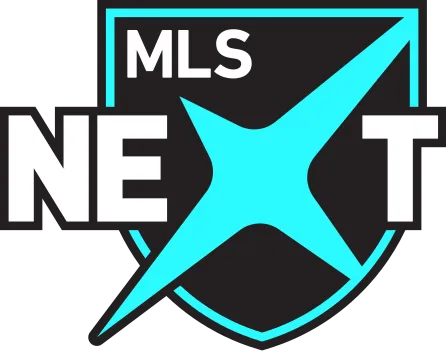Blogs
Read more on all of the mental performance and sport psychology tips to get out of your head and into the game.

Social Media Destroys Mental Wellbeing: How Athletes Can Take Back Control
About the author:
Alex Bolowich is a Certified Mental Performance Consultant, founder of Elite Mental Performance, a private practice in Charlotte, North Carolina, where he specializes in helping competitive athletes mentally train for consistent high performance. He is also co-founder of Ibex Tactics, a performance psychology organization that increases team and organizational performance through enhanced human-human connection. If you are interested in any of his signature programs, use the link here! Enjoy the article below!
Note: Ai was used solely for editing and grammar purposes. The creation of this article was handwritten by the author.
Social Media Destroys Mental Wellbeing: How Athletes Can Take Back Control
More time on social media is directly correlated with clinical depression1. Thirty-three million Americans are addicted to these platforms, with 40% of them between the ages of 18-221, and the statistics are even worse for females. Social media addiction is scientifically linked to interrupted sleep patterns, less meaningful relationships, increased depression and anxiety, body image issues, sleep disorders, cyberbullying, and countless other mental health challenges2.
Athletes are no exception to this epidemic. Their "superhuman" physical capabilities are no match for the vulnerable human condition that we all share. I was one who fell into the depths of depression during my days as a collegiate student-athlete. I had no idea what I was experiencing was a performance-based identity, where my value and worth as a person had become so tightly connected to my value as an athlete. Therefore, when my game started to struggle, everything in my life did. Why? How did I get there?
The Perfect Storm: When Vulnerability Meets Technology
There were a variety of factors that began when I was really young, the "sparks" that would eventually ignite the inevitable fight with depression I was going to face but didn't yet recognize. The gasoline to that fire was social media.
This was before Snapchat and Instagram came to dominate our feeds, but there are now specific studies that support the negative effects of each platform. This was during Facebook's earlier years, when the blueprint for social media addiction was still being written. I anticipated I would see negative comments about my performance, I knew that came with the territory of being a public athlete and was mentally prepared for criticism. What I wasn't ready for was experiencing cyberbullying and cyberstalking. Not to mention the constant comparison to everyone else's posts, not knowing that they were nothing more than everyone's highlight reels, not their actual lives.
We were the first generation where your social status was quantified by how many friends, likes, comments, reposts, and birthday wishes you received. It sounds absurd as an adult now. It doesn't seem possible that I could have actually allowed something so meaningless to become so meaningful. But what we often forget is that when you're a teenager or young adult, your image feels like everything. And now everyone has access to influence or even taint that image. Your biological instinct to worry about what other people think of you is being fed gasoline from social media in the most meaningless ways possible.
The Mental Health Mathematics
Your mental health is composed of patterns of feeling and thought. The more insecure moments you experience, the more insecure you become as both a person and an athlete. It's that simple. Like anything else in life, with enough repetitions, these thought patterns become instant and automatic.
Social media creates a feedback loop of insecurity. Every scroll, every comparison, every negative comment becomes another repetition in the wrong direction. For athletes, this is particularly devastating because mental strength is often the difference between winning and losing, between reaching your potential and falling short.
Why We Can't Just Delete It All
So why do we still have these platforms if they're so harmful? The reality is that too many people are too addicted to give them up entirely, and with how intertwined social media has become with business and communication in this country, it's not going anywhere anytime soon3. There will eventually be regulations around social media use, but humans are historically slow when it comes to understanding negative health implications and creating laws to address them. If you don't believe me, look up how long cigarettes were marketed as healthy and how long it took to mandate seatbelts in cars.
What Parents Can Do Right Now
Social psychologist Jonathan Haidt is spearheading the movement to impose stricter regulations on social media for young people. In his book "The Anxious Generation," he outlines four essential steps parents can take4:
No smartphone before age 14. When they do get one, make it a basic flip phone for calls and texts only.
No social media before age 16. Their brains aren't developed enough to handle the psychological manipulation these platforms employ.
Demand your local school district go phone-free. Schools should be places of learning and social interaction, not digital distraction.
Increase unsupervised play time, preferably outdoors. Give kids more responsibility and autonomy in the real world.4
Beyond these foundational steps, there are practical ways to regulate social media use. Take time to understand parental controls and have honest conversations with your teenager about the documented negative effects of excessive social media use. You can create a screen time agreement, monitor how much time is being spent on social platforms, and establish daily or weekly limits.
The Social Media Cleanse: A Tool for Athletes
This is a strategy I lead my athletes through regularly. We operate on the premise that if you "scroll through seven posts, your mind becomes the eighth." We want to ensure that what we're consuming on social media is more helpful than harmful. Here's how to conduct a thorough social media cleanse:
Grab pen and paper. Open your social media app (this process won't work effectively for Snapchat due to its ephemeral nature).
Scroll through your feed for 20 posts or profiles, stopping at each one intentionally.
Write down your immediate emotional response to each post. What thoughts or feelings arise first?
Unfollow or remove any profile that generates feelings of doubt, insecurity, envy, anger, fear, or any negative experience.
Keep the profiles that bring positive experiences, but remain cautious, even positive content can be addictive.
Actively search for helpful content. Follow profiles that align with your goals. Like and save their content so the algorithms show you more similar profiles.
Define what you're trying to improve. Maybe it's cooking as a hobby to disconnect from your sport, so you follow culinary profiles. Or perhaps it's a specific skill in your sport, and you want training ideas. Champion mindset and inner strength content can be incredibly valuable.
Practice mindful consumption. Every time you're on social media, if something brings you a negative experience, you have the power to remove it from your life.
Taking Back Control: A Hero's Mindset
My intention with this article is not to demonize social media entirely. There are legitimate benefits to these platforms, including connection with distant friends and family, access to educational content, building professional networks, and discovering new opportunities. But right now, the statistical evidence shows that the costs are significantly outweighing the benefits for most users, especially young athletes.
Whether you want to blame the social media companies and their founders is not what this discussion is about. That approach leads to a victim mindset, and frankly, I'm going to say it how it is: whether you're right to blame the companies or not, it doesn't change the fact that it's still our problem to deal with. So let's adopt a victor's mindset (a hero's mindset) and do something about it.
The Path Forward
Start having these conversations with your athletes, with coaches, with other families, and with teammates. Create awareness around the mental health impacts of social media. Share strategies for healthier usage. Support each other in making difficult but necessary changes.
For athletes specifically, remember that your mental game is just as important as your physical training. The same discipline you apply to your sport should be applied to your digital consumption. You wouldn't eat junk food all day and expect peak physical performance; don't consume mental junk food and expect peak mental performance.
Your mind is your most powerful tool as an athlete. Protect it, train it, and be mindful of what you consume. The choice is yours, and the time to act is now.
Getting Professional Support
Reminder, I’m a certified mental performance consultant (CMPC), not a clinically licensed mental health practitioner. If you feel your mental health is struggling, seek the appropriate professional support with a licensed practitioner in clinical mental health. You can visit PsychologyToday or visit your school's mental health resource. Therapy has been instrumental to my life in many ways, and I highly advocate for it!
If you’re looking for mental performance coaching or a mentor to provide tools to help navigate the pressures of being a student-athlete and increase your performance, we’re happy to offer a free consultation to see if we’re right for your mental game goals.
Disclaimer: The author is not a licensed mental health therapist or medical professional. This article reflects personal experiences and research findings, and should not be considered professional medical or therapeutic advice. If you or someone you know is experiencing mental health struggles, please seek help from a qualified mental health professional. If you or someone you know is having thoughts of suicide, please contact the 988 Suicide & Crisis Lifeline (call or text 988) or go to your nearest emergency room immediately.
Sources:
Barry, C. T., Moran-Miller, K., Levy, H. F., & Gray, T. (2022). Social media engagement, perceptions of social media costs and benefits, and well-being in college student-athletes. Journal of American College Health, 72(8), 2938–2947. https://doi.org/10.1080/07448481.2022.2142797
David, J. L., Powless, M. D., Hyman, J. E., Purnell, D. M., Steinfeldt, J. A., & Fisher, S. (2018). College Student Athletes and Social Media: The Psychological Impacts of Twitter Use. International Journal of Sport Communication, 11(2), 163-186. Retrieved Jul 28, 2025, from https://doi.org/10.1123/ijsc.2018-0044
Zubair, U., Khan, M. K., & Albashari, M. (2023). Link between excessive social media use and psychiatric disorders. Annals of medicine and surgery (2012), 85(4), 875–878. https://doi.org/10.1097/MS9.0000000000000112
Haidt, J., & Lukianoff, G. (2024). The anxious generation: How the great rewiring of childhood is causing an epidemic of mental illness. Penguin Press

Professional Basketball

NCAA Student-Athletes

Youth Professional Soccer

Professional Soccer

Professional Soccer

PGA Jr. Golf
© 2025 ELITE MENTAL PERFORMANCE LLC



